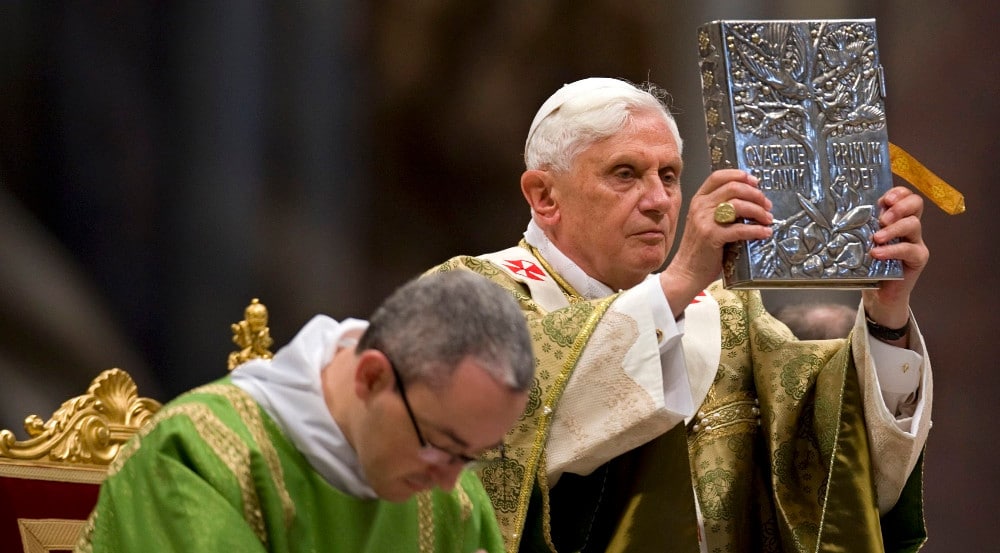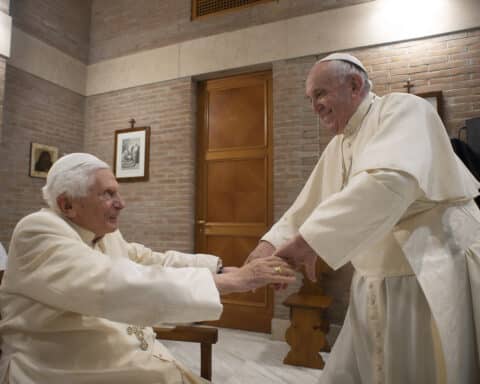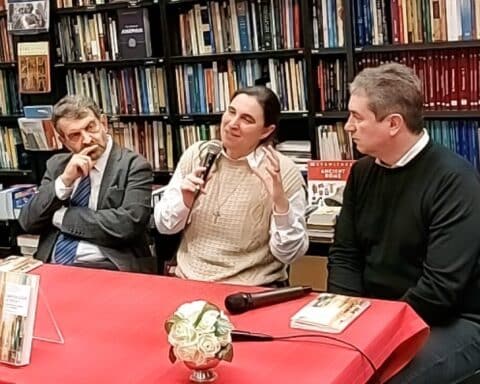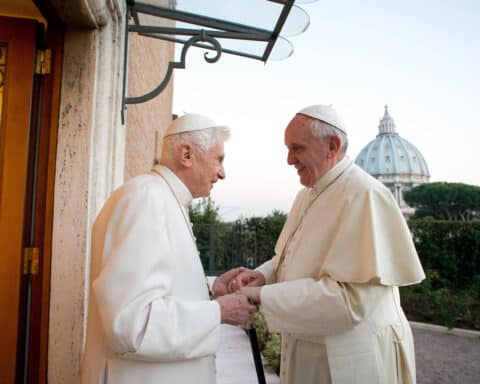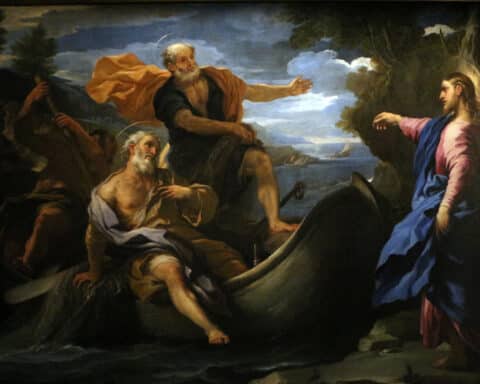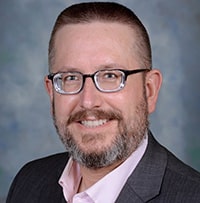
There are no coincidences, only divine providence, as our pastor, Father Tony Steinacker, is fond of saying; and the death of John Paul’s successor, Pope Benedict XVI, on the Seventh Day of the Octave of Christmas seems to me also providential.
For the Gospel reading for that day (provided it does not fall on a Sunday) is always the same. On the last day of the year, we hear the first verses of John’s Gospel: “In the beginning was the Word, and the Word was with God, and the Word was God.” If John Paul II was the Apostle of Divine Mercy, Pope Benedict XVI may someday be seen as the Apostle of the Divine Word.
So much of Joseph Ratzinger’s life and work can be seen as a public meditation on that first chapter of the Gospel of St. John. Sixteen months into his papacy, he made that reality explicit in a short meditation — a mere 16 paragraphs — delivered to the faculty of science at the University of Regensburg in Germany.
Quickly condemned as an attack on Islam, the Regensburg Address was nothing of the sort. As always, Pope Benedict’s words were chosen carefully in light of the audience he was addressing. For 500 years, in significant part because of philosophical trends that largely began in the universities of Pope Benedict’s homeland of Germany, faith and reason have increasingly been seen in opposition. That dualism has become so embedded in the mindset of the modern world that even Christians today take it for granted and regard faith not as the substance of things hoped for and the evidence of things not seen, but as an attachment to God that, at best, supersedes reason but more often is thought of as merely irrational.
Nothing could be farther from the truth, and that was the point of the part of Benedict’s address that hardly anyone read. While, for 500 years, English translations of John’s Gospel have rendered the Greek Logos as “Word,” the term, Benedict reminded us, encompasses “reason” as well. The Divine Word is not irrational, nor does it supersede reason; it — or, rather, he — is reason incarnate. The Logos became flesh and dwelt among us not to denigrate reason or to rescue us from it but to lift the veil from our minds that had been placed there by Adam’s sin. In uniting ourselves to Christ through faith and the sacraments, we are not only saved but set free from the darkness of both irrationality and the besetting sin of the modern world, reason run amok.
On that final day of the year, the Seventh Day of the Octave of Christmas, and, from now on, the anniversary of Pope Benedict’s death, we hear from John the Evangelist not only in the Gospel reading but in the first reading at Mass as well. That reading, from the First Letter of John, warns us that the hour is late, and that many antichrists have appeared. The answer to their lies is not an irrational faith but the faith that brings reason to fruition: “you have the anointing that comes from the Holy One, and you all have knowledge. I write to you not because you do not know the truth but because you do, and because every lie is alien to the truth.”
Pope Benedict knew the truth and devoted his life to bringing that truth — that Logos — to us. May his memory be as eternal as the eternal Word.
Scott P. Richert is publisher for OSV.

